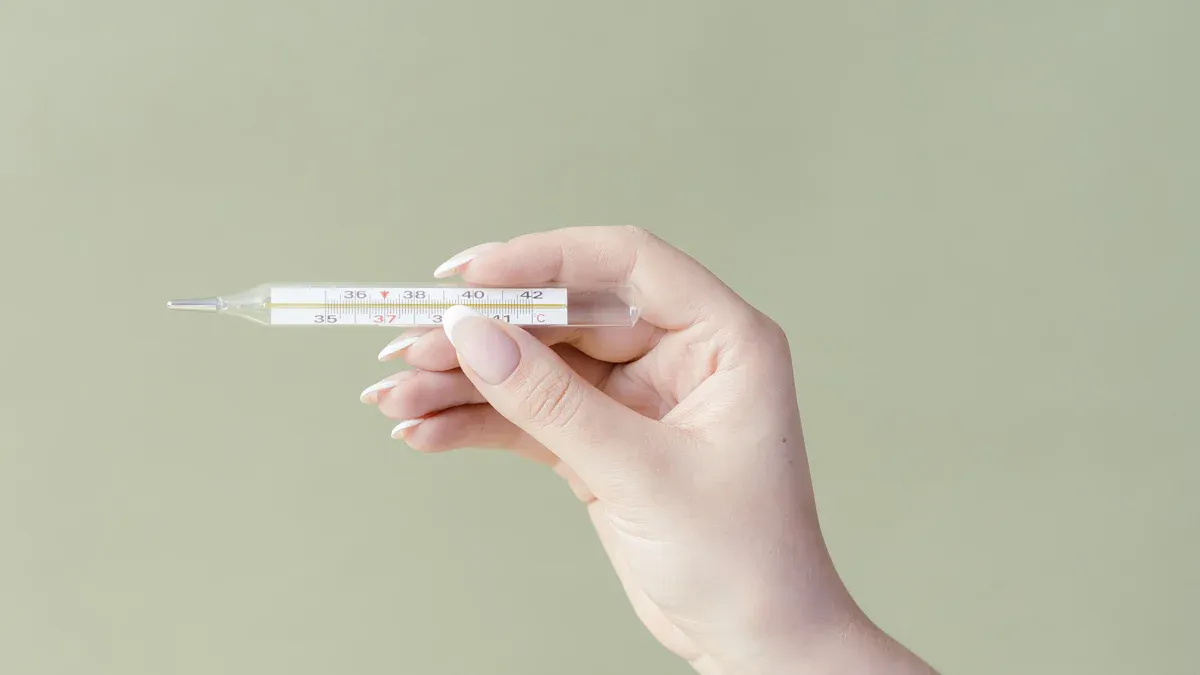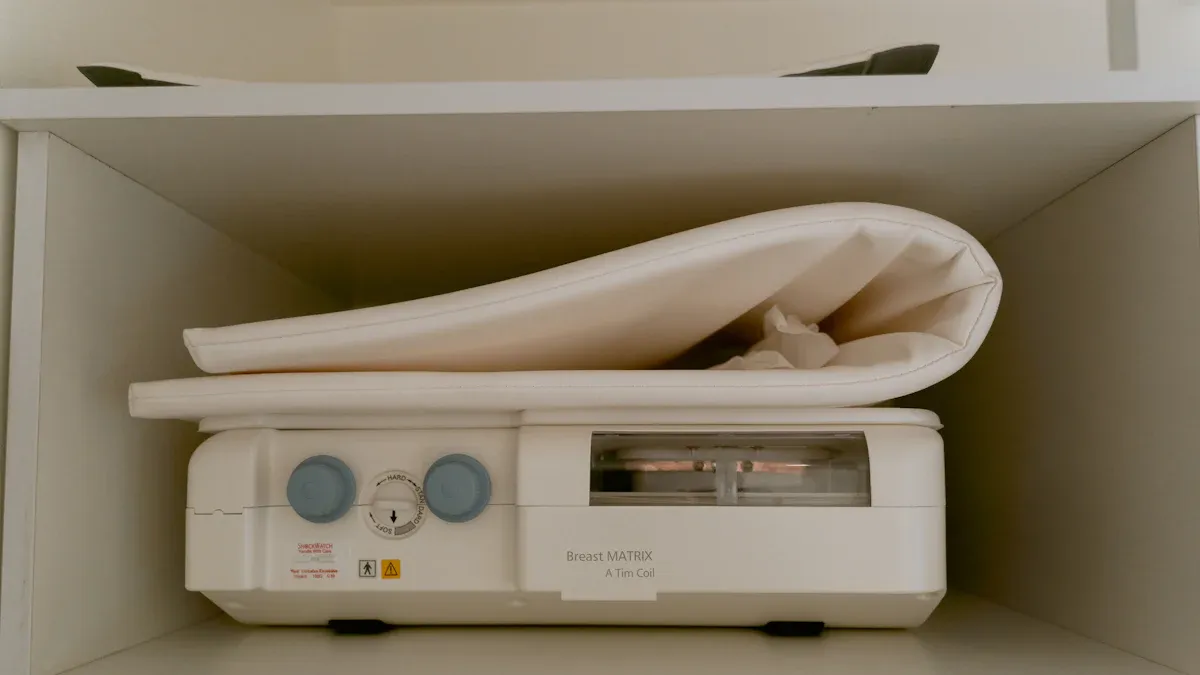Thin-Wall Nitinol Tubing for Stents: Price Guide

When looking at thin-wall nitinol tubing for stents, the thin-wall nitinol tubing for stents price per meter typically ranges from $100 to $150. The cost can vary based on the quality of the material, the manufacturing process, and the expertise of the supplier. Companies prefer to collaborate with experts who can create detailed designs, utilize advanced tools, and manage multiple steps in one location. These capabilities contribute to product accuracy and cost savings. Suppliers like AccuPath are excellent choices because they use high-quality materials and streamlined processes, ensuring you receive reliable results for stent production.
Key Takeaways
Thin-wall nitinol tubing costs $100 to $150 per meter. Prices depend on quality and how it is made.
Picking a trusted supplier like AccuPath gives better tubing and help. Compare suppliers to find what works best for you.
Buying more tubing at once can save money. Suppliers often give discounts for big orders, making it cheaper for projects.
Good material is important for stents to work well. Choose tubing with shape memory and flexibility for safety and good results.
Talk clearly with suppliers about what you need. Good relationships can mean better prices and faster service.
Understanding Thin-Wall Nitinol Tubing

What is Thin-Wall Nitinol Tubing
Thin-wall nitinol tubing is a special material used in medicine. Nitinol is a mix of nickel and titanium metals. It has unique features like shape memory and flexibility. These qualities make it perfect for tools that need to bend and last long. The tubing is made with exact sizes and smooth surfaces for accuracy.
Making this tubing uses advanced methods like welding and laser cutting. These techniques help control the wall thickness, which affects strength and durability. If the walls are too thick or thin, the tubing may not work well under pressure. This is why careful production is important for medical devices like stents.
Applications in Stent Manufacturing
Thin-wall nitinol tubing is key in making nitinol stents. Stents are tiny tubes that keep blood vessels open for better blood flow. Nitinol stents can stretch and fit the vessel's shape without breaking.
Studies show how wall thickness and surface smoothness affect stent performance. For example, research compared nitinol tubing to stainless steel tubing. It found nitinol is better because it handles stress and pressure well.
Aspect | Details |
|---|---|
Focus | Study of thin-walled tubing for stents |
Material | 316L stainless steel |
Manufacturing Technique | Selective laser melting (SLM) |
Wall Thickness | 500 μm |
Key Findings | Stress-strain results were similar for tubes and stents. |
Thin-wall nitinol tubing makes stents strong, flexible, and reliable. Its precision helps stents work well inside the human body. This makes it essential for modern medical tools.
Thin-Wall Nitinol Tubing for Stents Price Per Meter
Price Range Across Suppliers
The cost of thin-wall nitinol tubing can vary a lot. Regular tubing usually costs $300 to $500 per meter. For special uses, like bioabsorbable alloys, prices can reach $800–$1,200 per meter. These price differences depend on how the tubing is made and the materials used.
Suppliers set prices based on the tubing's features. Tubing with very thin walls or smooth finishes costs more. Companies with advanced tools, like laser cutters, may charge higher prices. Even though these costs seem high, they ensure the tubing meets strict medical standards.
When buying nitinol tubing, check prices from different suppliers. Some, like AccuPath, offer good prices without lowering quality. Comparing options helps you find tubing that fits your budget and needs.
Factors Influencing Price Variations
Many things affect the price of thin-wall nitinol tubing. Knowing these can help you choose wisely:
Material Quality: High-quality nitinol with the right mix of metals costs more. This ensures the tubing is flexible and keeps its shape, which is important for stents.
Manufacturing Techniques: Special methods like laser cutting make production more expensive. These methods improve the tubing’s strength and accuracy for medical use.
Supplier Expertise: Experienced suppliers often charge more. Their skill ensures the tubing meets medical standards and stays consistent in quality.
Customization: Custom tubing with specific sizes or finishes costs more than regular options.
Order Volume: Buying in bulk lowers the price per meter. Small orders may cost more due to setup fees.
💡 Tip: Don’t just look at the price when choosing a supplier. Paying a bit more might get you better quality, faster shipping, or helpful support.
By understanding these factors, you can pick tubing that fits your project and budget.
Comparing Nitinol Tubing Suppliers

AccuPath
AccuPath is a reliable supplier of nitinol tubing. They are experts in making high-quality stents. Their production methods focus on accuracy and meeting medical rules. Using advanced tools like laser cutters, they create smooth and precise tubing. This makes their products strong and flexible, perfect for stents.
AccuPath offers good prices without lowering quality. Their efficient processes help keep costs low. If you need custom tubing, they can make it to fit your needs. Their helpful support team makes buying easy and stress-free.
🏆 Why Pick AccuPath?
Top-quality nitinol tubing for stents.
Accurate manufacturing with advanced tools.
Fair prices and custom options.
Supplier B
Supplier B sells various nitinol tubing for stents. Their tubing is strong and flexible, great for medical use. But their prices are higher than others. This is because they use premium materials and special methods.
They offer custom tubing, but delivery can take longer. If you need tubing fast, they might not be the best choice. Their customer service is dependable but less personal than AccuPath’s.
Feature | Supplier B Details |
|---|---|
Material Quality | High-grade nitinol |
Pricing | Above average |
Lead Times | Slower |
Customization Options | Available |
Supplier C
Supplier C is a budget-friendly choice for nitinol tubing. They are good for companies with limited funds. Their tubing meets basic medical needs but lacks advanced features like AccuPath’s or Supplier B’s.
Their simpler methods may affect precision and surface quality. If your stents need high accuracy, consider other suppliers. Their support is okay but not as skilled as AccuPath’s.
⚠️ Things to Know About Supplier C:
Low-cost nitinol tubing.
Basic quality for simple uses.
Limited precision and fewer custom options.
Summary Table of Price and Features
When picking a supplier for nitinol tubing, it helps to compare their prices and features. This table shows the main details of three suppliers: AccuPath, Supplier B, and Supplier C. Each has different strengths, but their prices, quality, and custom options are not the same.
Supplier | Price Range (Per Meter) | Material Quality | Customization Options | Lead Times | Best For |
|---|---|---|---|---|---|
AccuPath | $100–$150 | Top-quality nitinol | Many | Quick | Accurate nitinol stents |
Supplier B | $150–$200 | High-grade nitinol | Offered | Average | Detailed stent designs |
Supplier C | $80–$120 | Basic nitinol | Few | Quick | Low-cost stent projects |
AccuPath is great for its mix of good price and quality. Their nitinol tubing meets strict medical rules, making it perfect for strong and precise stents. Supplier B sells high-quality tubing but charges more. They are good for tricky stent designs, though delivery might take longer. Supplier C is the cheapest option. Their tubing works for simple needs but lacks advanced features for top-notch stents.
💡 Tip: Pick AccuPath for reliable tubing, fast shipping, and great support. Choose Supplier B for special designs or Supplier C for saving money.
By comparing these suppliers, you can choose the best tubing for your project. Think about the balance between cost, quality, and custom options.
Key Factors to Check When Comparing Prices
Material Quality and Features
When checking prices for nitinol tubing, material quality is key. Good nitinol has special traits like shape memory and superelasticity. These let the tubing return to its shape after bending and handle stress well. Testing for safety ensures it’s okay for medical use.
Manufacturers follow strict rules, like FDA or CE Mark standards. These rules confirm the tubing is safe, non-toxic, and lasts long in the body.
Property | What It Means |
|---|---|
Shape Memory Effect | Goes back to its shape when heated. |
Superelasticity | Bounces back after bending without damage. |
Biocompatibility | Safe and works well in the human body. |
Corrosion Resistance | Doesn’t rust, making it last longer in tough conditions. |
Picking tubing with these features ensures your stents work safely and effectively.
Supplier Trust and Certifications
A supplier’s trustworthiness and certifications affect tubing quality. Look for suppliers with certifications like ISO 13485 or AS9100. These prove they follow strict quality rules and meet industry standards.
Reputation is also important. Trusted suppliers deliver good products and focus on customer needs. Use this table to compare suppliers:
Key Factor | What It Shows |
|---|---|
Material Consistency | Ensures the tubing works the same every time. |
Customization Options | Can make tubing fit your specific needs. |
Pricing and Value | Balances cost with quality and performance. |
Customer Service | Offers help and support to buyers. |
Certifications | Proves they meet industry safety and quality rules. |
Innovation | Invests in new ideas and better products. |
Post-Sale Support | Helps you after buying to ensure satisfaction. |
Reliable Delivery | Delivers products on time without issues. |
Choosing a certified and reliable supplier ensures you get tubing that meets your needs.
Discounts for Bulk Orders and Shipping Costs
Buying in bulk can save money on nitinol tubing. Many suppliers lower the price per meter for big orders. This is helpful if you need tubing for many stents.
Shipping costs also add to the total price. Some suppliers include shipping, while others charge extra. Check these costs, especially for international orders. Good suppliers explain their shipping clearly, so there are no surprises.
💡 Tip: Ask about bulk discounts and shipping details early. This helps you save money and plan better.
By thinking about these points, you can choose the best tubing for your project.
Tips for Saving Money on Nitinol Tubing
Talking About Prices with Suppliers
Talking about prices with suppliers can help you spend less. First, learn the usual price range for nitinol stents. This helps you feel confident when discussing costs. Explain your project needs clearly to the supplier. When they know what you need, they can suggest options that fit your budget.
Ask if they offer discounts for big orders or regular purchases. Many suppliers lower prices for customers who buy often. If you’re trying a new supplier, ask for a small sample first. This lets you check the quality before buying more. Be polite but firm when talking about prices. Trust between you and the supplier can lead to better deals later.
Why Buying in Bulk Helps
Buying nitinol tubing in bulk can save you a lot of money. Suppliers usually charge less per meter for larger orders. This is great if you make many nitinol stents. Bulk buying also means fewer orders, saving time and effort.
Another plus is consistency. Bulk orders ensure all tubing comes from the same batch. This makes your final products more reliable. Before ordering in bulk, check if the supplier meets your thin-wall tubing needs. Good materials ensure your stents meet medical standards.
💡 Tip: Plan how much tubing you need to avoid extra stock. Too much can cause storage problems or waste.
Building Strong Supplier Partnerships
Working with the same supplier over time has big benefits. Long-term suppliers learn your needs and can offer better solutions. Loyal customers often get faster service and lower prices.
To build a good partnership, talk openly and often. Share your thoughts about their products and services. If problems come up, solve them quickly and kindly. Trust is key for getting reliable nitinol tubing. Over time, this partnership can lead to special deals and priority help.
🏆 Pro Tip: Think of your supplier as a teammate, not just a seller. Working together helps everyone succeed.
Checking supplier prices helps you save money and get value. Using good materials lowers the chance of device problems and fixes. Making sure suppliers have certifications proves they follow safety rules, keeping medical devices reliable.
AccuPath is a trusted name for thin-wall nitinol tubing. Their products work very well in medical uses:
Evidence Type | Details |
|---|---|
Tissue Reactions | Very low tissue reactions after use, scoring between 0 and 1. |
Intraocular Pressure Reduction | Kept eye pressure 30% lower for six months. |
Histological Findings | No major swelling or tissue harm was found. |
By talking about prices, buying in bulk, and working with trusted suppliers like AccuPath, you can get great quality at a fair cost.
FAQ
Why is thin-wall nitinol tubing good for stents?
Thin-wall nitinol tubing bends and returns to its shape easily. This helps stents fit blood vessels without breaking. It is safe for the body and lasts a long time. Its accuracy and strength make it great for making stents.
How do you check nitinol tubing quality?
Look for certifications like ISO 13485 or FDA approval. These show the tubing meets health rules. Ask suppliers about how they test materials and make the tubing. Good suppliers give clear details and keep quality steady.
Does ordering more tubing lower costs?
Yes, buying in bulk often makes tubing cheaper per meter. Suppliers save money when making and shipping large orders. This helps if you need tubing for many stents. Always ask suppliers about discounts for big orders.
Are cheap suppliers risky?
Cheap suppliers might use lower-quality materials or miss details. This can make stents less safe or work poorly. Check their certifications, reviews, and reputation before buying. Spending a bit more on trusted suppliers gives better results.
Can nitinol tubing be customized?
Yes, many suppliers let you change tubing size or finish. You can ask for specific thickness, diameter, or surface smoothness. Custom tubing helps stents meet exact medical needs. Talk to suppliers to see what options they offer.

